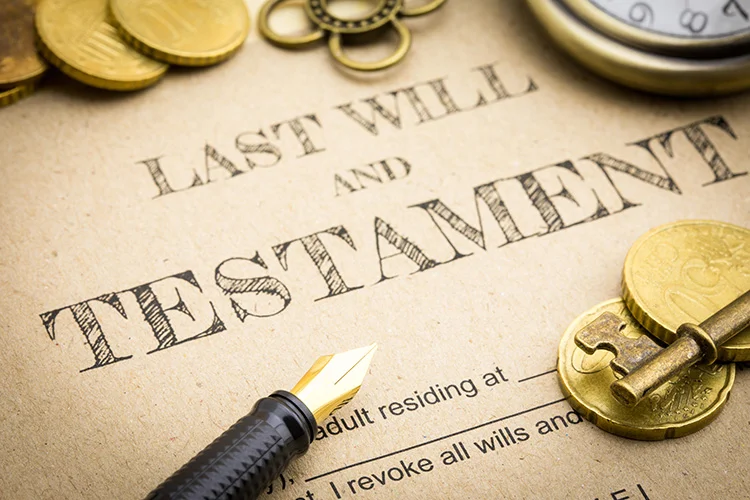Guide to the Rights of an Adopted Child

Rights of an Adopted Child
Adoption changes the relationship once and for all, including the right to inherit. The parental rights of the biological parents are severed while a new relationship is formed.
The adoption process substitutes the child’s birth family with the adoptive parents. Hence, biological and adopted children have equal rights in the eyes of the law.
But this creates a new set of questions regarding the rights of the adopted children. This article takes you through the rights of an adopted child, inheritance, and much more.
What Are the Rights of an Adopted Child?
Adopted children have the same rights as biological children, including being legal heirs. The child is the legitimate child by all means. And as such has the right to receive support(both emotional and financial) from both parents. Furthermore, the law also treats the adopted children and biological children the same at all times. Adoptive parents have the legal responsibility to provide and care for the children until they are 18.
Do Adopted Kids Have More Rights than Biological Kids?
No! As per the adopted child inheritance law, the adopted children have the same rights as biological children. This includes the assets and the inheritance. In the eyes of the law, both the children are the same. It doesn’t differentiate between biological and adopted children.
Is a Legally Adopted Child Entitled to an Inheritance?
An adopted child is entitled to an inheritance from the adoptive parents and other descendants. He or she can also stake a claim to the property and assets of their parents. In the same line, adoptive parents are also entitled to inherit from the adopted children.
What Are the Inheritance Rights of an Adopted Child?
As per the intestate succession laws, the adopted and biological children are equal. Therefore, adopted children have equal rights when it comes to inheritance. Furthermore, they also have the right to inherit, like the natural children. The inheritance rights of the child include:

- Under intestacy law, the adopted child has the right to receive property. If the adoptive parent dies without a will, both birth and adopted children have a right to the estate. The same is true even if the parents die without a will. Furthermore, they can also contest or challenge the wills if needed. This right also extends to other relatives like grandparents.
- He/she has the right to a portion of the parent’s estate if left out of the will. If the adoptive parent dies without changing the will, the adopted child will receive a portion of the inheritance.
While these are common for most states, there can be a few changes depending on the local laws. However, to protect the rights of an adopted child, the parents have to make a valid will. The will contains the details about who is to inherit what and how much. This ensures the outcome as you desire concerning the inheritance rights.
Contact a probate lawyer for legal advice. Depending on the circumstances of the estate, he/she will help you with your query.
Is an Adopted Child Considered an Heir?
Under the next of kin laws, legally adopted children are heirs to their parent’s estate. The law has no doesn’t distinguish between an adopted and biological child.
Can You Exclude Adopted Children from Their Inheritance?
Like biological children, parents can exclude adopted children from their inheritance. However, the parent has to put this in writing using precise language. It should be apparent that disinheriting is the parent’s intent at that point in time. Otherwise, the child can inherit their portion as an overlooked heir. In the absence of the will, everything goes to the surviving spouse. If the spouse doesn’t survive, the state divides the estate among all the children.
Can an Adopted Child Inherit from Biological Parents?
The adoption process changes the relationship between a child and the birth parent. The adopted person cannot inherit from the biological parents. He/she does not have any right to the birth parent’s estate or assets. By adopting, the biological family is substituted by the adoptive family. However, the birth parent can provide for the child in the will. In this case, the birth parent has to mention the child as a beneficiary for them to inherit. As long as none of the family members object to your inclusion and challenge the will, the request will be honored. However, if the birth parent dies without a will, an adopted son cannot claim the estate.
Can an Adopted Child Sue Birth Parents?
After adoption, adopted children do not have a legal relationship with the birth parents. And the biological parents are no longer considered his/her parents. As such, they cannot sue the birth parents for a part of the inheritance. However, it depends on the circumstances and the age. If the child depends on the birth parents somewhat or wholly, they can contest the will.
If you believe you have the grounds to sue, contact an estate lawyer for assistance. Else you can use a lawyer referral service to find the right lawyer for your situation.
Does the Biological Father Have Rights After Adoption?
After adoption, the state terminates the legal parent-child relationship between the child and the biological parents. Generally, the birth father will have rights to the child during the process of adoption. However, once the adoption is final, the birth father will have little if any rights.
Conclusion

In the eyes of the law, both the adopted children and biological children are the same. As such, they inherit a portion of the estate after the death of the biological parent. If you are worried about your child’s inheritance, ensure that you leave a clear will. And do it in the presence of a lawyer who specializes in inheritance.
In addition, keep the will up-to-date with the current information. This will help to protect the rights of the adopted children.
Contact an estate lawyer for all your questions related to adopted child property rights. If you are considering adopting a child or need assistance with an adopted child’s rights, please contact Randle Palmer & Associates for your free consultation today!



